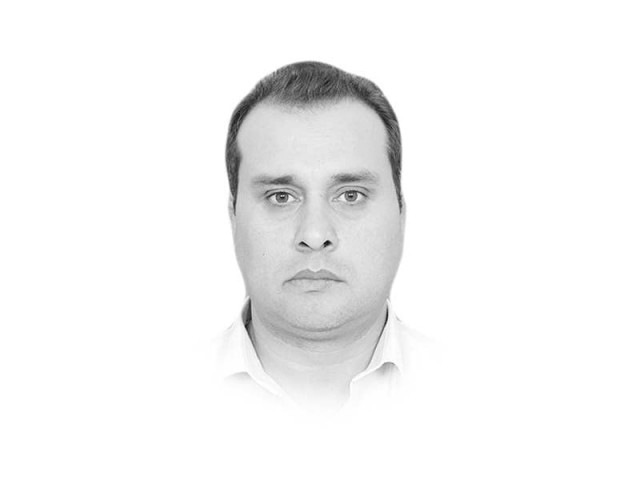The messiah complex
We are always in search of the saviours who can redeem our miseries with quick fixes

The writer is executive director of the Centre for Governance and Public Accountability and holds a master’s degree in Development Studies from the University of Rotterdam
All the great leaders in the world either laid the foundations for new systems or tried to implement the existing system to perfection. All political parties in Pakistan agree on democracy as a viable system of governance. These political parties often present democratic credentials in their fight against dictatorships. However, most of their leaders consider themselves indispensable and above democratic norms within their parties. The Pakistan Institute of Legislative Development and Transparency (PILDAT) report titled “The Internal Democracy of Major Political Parties in Pakistan 2015” is a testimony of the damages inflicted upon us by this messiah complex. The report highlights that intra-party elections in the PML-N have been overdue since July 2015. The party’s Central Executive Committee has not met for the last two and a half years. The party’s president, who once almost inflicted himself upon us as Amirul Momineen, has been keeping all powers in his hands. Nawaz Sharif has not left his party position even after his election as prime minister. His attendance in the National Assembly is very much reflective of the level of respect he appears to have for this institution.
After winning the 1992 World Cup and establishing Shaukat Khanum Memorial Cancer Hospital, Imran Khan was seen by my generation as a messiah. I was one of the many who were moved by his decision to step into politics and establish the PTI. However, this messiah complex shattered when Imran Khan started protests against rigging in the 2013 elections, attacking parliament and abusing the judiciary. The party lost many opportunities to develop democratic systems from within. One such opportunity was implementing the recommendations of the election tribunal, established to investigate irregularities in the PTI’s intra-party election, headed by Justice Wajihuddin. Recently, it postponed its intra-party election again and no new date has been announced yet. Imran Khan’s attendance in the National Assembly and his participation in legislative processes is dismal.
The culture of dynastic politics is well established in the PPP, the ANP and the JUI-F. The ‘messiahs’ of these political parties never allow themselves to be replaced in their lifetime. Powers are inherited by the next generation of the dynasty. This ‘imposed’ leadership has damaged the democratic credentials of political parties and taken a heavy toll on the development of democratic processes within Pakistan.
Shouldn’t the self-proclaimed ‘liberal’ parties be ashamed that the Jamat-e-Islami (JI) has greater democratic credentials than they do? One can differ with the JI’s ideology but regular intra-party elections for the top-most position is a process that other parties should learn from. The JI can do even better by ensuring women equitable representation and allowing all party members to vote in intra-party elections directly, for the party head.
The messiah complex has also penetrated the civil service. The issue of personalisation of institutional powers has caused great damage to institutional viability and the rule of law. As President Obama once said: “When the leader tries to change the rules in the middle of the game just to stay in office, it risks instability and strife … And sometime you hear a leader say ‘I am the only person who can hold this nation together’; if that is true then that leader failed to truly build the nation.” This applies to political parties and public institutions. In order to break out of the messiah complex and evolve strong democratic structures, parties must hold regular intra-party elections. Their leaders should not be elected for more than two terms. Those who take any government position should not hold party positions simultaneously, and vice versa. No individual is indispensable, only institutions and democracy are.
Published in The Express Tribune, May 6th, 2016.
Like Opinion & Editorial on Facebook, follow @ETOpEd on Twitter to receive all updates on all our daily pieces.
















COMMENTS
Comments are moderated and generally will be posted if they are on-topic and not abusive.
For more information, please see our Comments FAQ